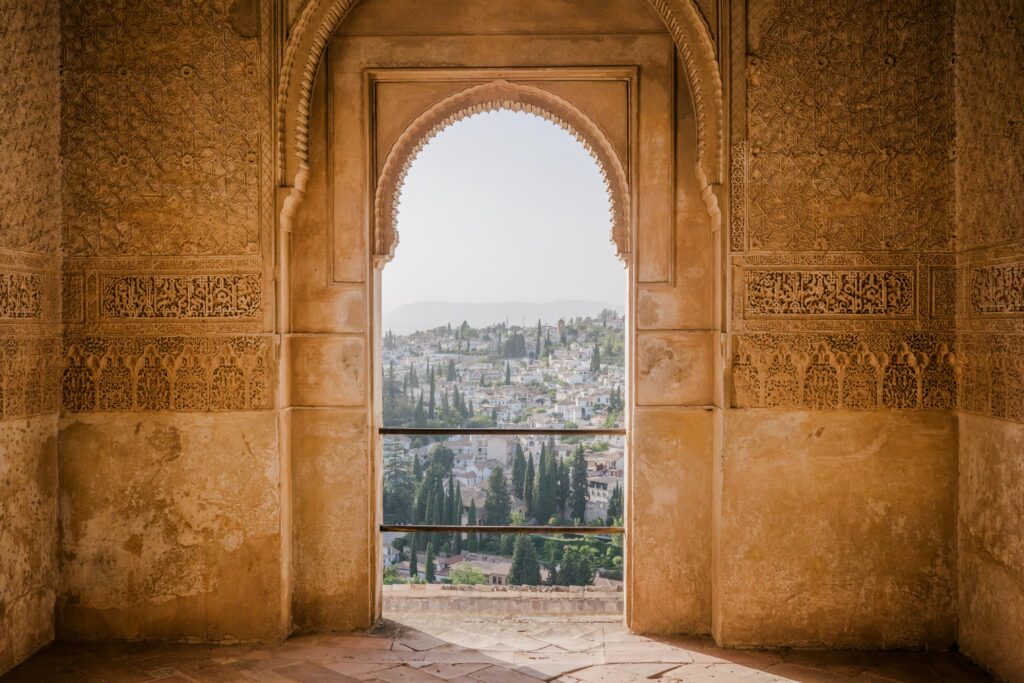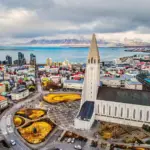For almost three months, I had the opportunity to experience the daily life of a typical family in Biougra, and in Marrakech, I immersed myself in the atmosphere of a tourist city full of cultural landmarks.

Before deciding to volunteer in Morocco, I knew it would be a unique experience. The country offers several tourist cities and a variety of natural attractions, including beaches, mountains, rivers, waterfalls, and the desert. However, what I hadn't anticipated was my love for the local cuisine and the opportunity to meet incredibly welcoming people.
Being a Muslim-majority country, it was natural to have some fear regarding harassment, but I realized that this fear disappears when you are willing to respect the local culture and religion who is visiting.
The most essential thing is to dedicate yourself to volunteering and value what really matters, which is the chance to be in Morocco, sharing daily experiences while offering help.
And, without a doubt, a volunteer experience in Africa can significantly enrich your experience in a specific country.
After living in Morocco for almost three months, I discovered several valuable lessons:
1. Valuing Experience
Regardless of your level of education, when you volunteer at an organization or shelter, you'll be greeted with warmth and gratitude. Volunteers are appreciated not only for the work they do, but, above all, for the time and knowledge they dedicate.
Moroccans love discussing local traditions and learning about new cultures, making conversations and itineraries to explore incredible places a constant.
2. Hosts by Nature
When volunteering in Morocco, you'll almost certainly be invited to visit the family of someone you met during your experience, and, of course, share a meal with them. This is a way to express gratitude for their service to the local community, whether through social work or simply out of empathy.
Moroccans enjoy interacting with other cultures. Young people, who generally speak Arabic and French, are particularly interested in practicing English and Spanish with visitors.
Typically, the first visit takes place on Friday, Moroccan couscous day. If you win the family's favor, you'll likely receive repeat invitations, as will their pleasure in welcoming you and providing the best. This includes a lesson on how to prepare Moroccan tea, a brief introduction to Arabic with the names of the dishes, and even offering a bed for a nap after the meal.
3. Moroccan Couscous
This wheat semolina-based dish is one of the Arab country's culinary attractions. The recipe involves steaming couscous in chicken broth, vegetables, and sometimes chickpeas. The pot used for this preparation is similar to the one used for Brazilian couscous, but it's larger, allowing both mixtures to be cooked simultaneously. To top it off, the couscous is served in a large tagine, topped with cooked chicken and vegetables, and accompanied by a creamy milk sauce.
Moroccans choose Friday to enjoy this dish, as it is the day of great prayer, a holy day for them. In other Arab countries, such as Egypt, this day of the week is considered a "day off" due to its importance to Muslims. However, Morocco follows the tradition of prayer, keeping only Sunday as a "day off," influenced by French colonization.
4. No cutlery, no dishes
Although some restaurants provide plates and cutlery for tagine, couscous, refissa, and other Moroccan dishes, this is not the traditional way of eating in the country. In homes and some local restaurants, Moroccans use large platters to serve the main meal, placing them in the center of the table for everyone to share. It is common to eat with your hands, preferably the right hand. Bread is used to pick up the food, avoiding burning your fingers if the dish is too hot.
Contrary to what many people might think, it's not unpleasant, and over time you'll notice that the flavor of your food changes when you eat with your hands instead of a fork or spoon.

5. Moroccan Coffee
It's not uncommon to be surprised when you walk into a coffee shop in Morocco and find a predominantly male clientele and staff. In Arab countries, it's common to find numerous cafes where women are generally not regular customers.
Unlike other places, Moroccan cafés specialize in tea, making it the locals' favorite beverage. Customers enjoy tea while people-watching or enjoying lively conversations with friends. Cafés are always full, regardless of the time of day.
6. Security in Morocco
Morocco stands out as one of the safest countries on the African continent. Those who faithfully follow the principles of the Quran prioritize self-respect and respect for others.
Family is deeply valued and respected. Sons are raised to follow their religion and pursue a prosperous life, while some families allow their daughters to freely decide on marriage and careers abroad.
During my stay, I did not witness extremist worship or any form of idolatry in the places I visited.
7. Call to Prayer
Arab countries practice Islam authentically, following the teachings of the Prophet Muhammad. To remind people to pray, loudspeakers are installed throughout Moroccan cities, issuing five daily calls. However, people are not obliged to pray every time they hear the loudspeakers; they are free to do so anywhere, not just in mosques.
8. Freedom of Dress
Women are not required to wear the hijab to cover their hair. The decision to wear this headdress is personal and often linked to religion, but it is not compulsory. Many Muslim women choose to wear the hijab, a garment that preserves modesty but leaves their hair visible, covering it only when entering mosques.
9. Moroccan Pajamas
Pajamas are a widely worn garment among women in Morocco. Besides being comfortable for a good night's sleep, pajamas play an important role in everyday life and are commonly found in local stores.
Women of all ages choose to wear loose-fitting T-shirt and pants sets, remaining at home all day. It's common to see them visiting neighbors and shopping in markets in their pajamas. When they need to go out for more formal or distant appointments, they simply add the hijab to their cotton ensemble.
10. Clothing Behavior
As in other Arab countries, men are not accustomed to seeing women in tight, short, or revealing clothing, except in highly touristy places like Casablanca and Marrakech. Therefore, when they spot a woman wearing clothing that emphasizes her curves or reveals more than just her face, especially younger men, they tend to stare until the person is out of sight and may make comments like "you're beautiful" or "oh my God."
This doesn't mean that all men act this way; many prefer to ignore it or look away.
Note: It's important to remember that this was my personal experience, and other people's experiences may be completely different, including experiences of more aggressive harassment or the absence of any problems related to the topic.
With content from worldpackers.com
Lucas Wanderlust has a tireless spirit of adventure, always seeking new travel experiences. Fascinated by the world and the possibility of exploring unknown destinations, he fell in love with the sense of freedom and self-discovery that traveling alone provides. With a backpack on his back and a heart open to the unknown, Lucas embarks on exciting journeys, where each destination becomes a unique chapter in his life story. He gives himself body and soul to the magic of solo travel, inspiring others to follow in his footsteps and discover themselves through adventure.







